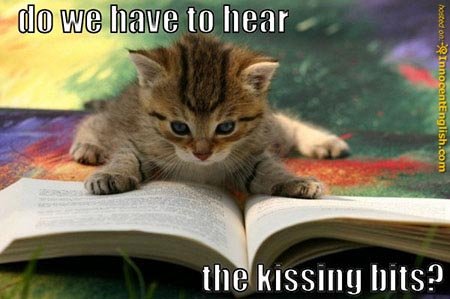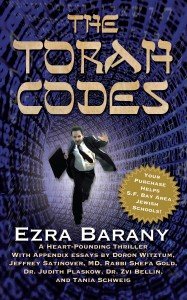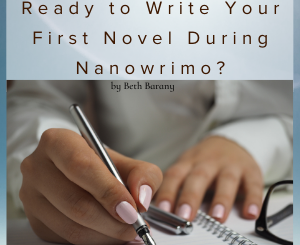How to Write and Get Great Reviews — With Examples of a Book Review
 This blog post shows you how to get great book reviews, how to write book reviews, and examples of a book review.
This blog post shows you how to get great book reviews, how to write book reviews, and examples of a book review.
A lot of authors think that getting many five-star ecstatic reviews will help make more book sales, so they get their family and friends to post rave reviews. The problem is that browsing readers can detect false praise a mile away, so if you just help guide the reviewer on how to sound authentic, your reviews will in fact help you make more sales of your books.
When I evaluate a book that looks good, the first reviews I look at are the one-star reviews. I carefully scrutinize what the reviewer writes.
Why do I start at the one-star reviews? Because I’ve already got the impression the book may be worth getting, so I want to know what’s wrong with the book. You know the expression, “Too good to be true?” I come to a book that looks promising while thinking of that expression.
Since the one-star review doesn’t make the author happy, I know the reviewer’s not a close friend or relative of the author, so whatever the reviewer has to say may be more trustworthy. Also, I like reading one-star reviews because it can be fun to see someone ruthlessly tear a book apart if they do it with wit and humor.
If I get the impression that the reviewer is being biased or unfair, or their reason for not liking the book is insignificant, then I might look at the two-star reviews, and I’ll soon go to the four-star and five-star reviews.
Ideally, you want a review that combines both the excitement of how good your book is with the honesty and credibility of a one-star reviewer.
What Makes a Good Review?
Like I said, when people see five-star reviews with praise, they often think the reviewer is a friend of the author. Browsers of books will then dismiss those reviews as being biased. So actually, those are not good reviews. The best reviews are ones that sound sincere and come from a place of authentic criticism.
From beginning to end, here’s what a good review should have:
1. Typical Reading (To show where the reviewer is coming from)
The reviewer should explain where they’re coming from. Do they usually read science thrillers? Erotic romance? Knowing what the reviewer usually reads helps us know through what lens they’re looking when they comment on a book.
2. Pleasantly Surprised (To show that the reviewer can be trusted)
If the reviewer says they knew the book was going to be great because the author is their son, we won’t trust the review. But if the reviewer says they didn’t think the author or the book would be all that interesting, we feel like the reviewer has confided in us.
“I was pleasantly surprised” is a great comment. When a reviewer says she wasn’t expecting much and was pleasantly surprised, that tells us we can trust her. She’s being honest. As prospective buyers of the book reading her review, when we learn that we can trust the reviewer, we’ll be willing to read what else she has to say.
3. Reader’s Experience
Phrases like “I couldn’t put the book down,” or “It had me routing for the heroine,” are very useful. The overall experience is a great way to convey not only the value of the book but also what experience one can expect when reading it.
4. Specific Praise
It’s good to have content like, “This was a good book, I liked it a lot.” But it’s better to have specifics. “The writing was captivating,” “The characters were believable and I cared about them,” “The plot had so many twists and turns I couldn’t put the book down.” Specific praise helps browsing readers get a better sense of why your book is so good.
5. The Worst Problem (Back to the trust) + 6. The Best Part of the Book (To counter the one problem)
Why mention the worst problem about the book? By allowing the reviewer to reveal the worst problem of your book you gain two things. The superficial advantage is that the browsing reader will trust the review more. (We assume that anyone that mentions something bad about the book is being completely up front.)
The best advantage of revealing the worst problem with the book is that you reduce the risk of having someone who dislikes your style of book read it and give a harsh review of it. Is the problem that the characters are too stereotypical? Any reader who hates stereotypical characters will avoid the book and the only readers the book attracts will be ones who don’t mind stereotypical characters.
Better to prepare readers on what the biggest problem of your book is so they can decide if they’re willing to dismiss the problem and enjoy everything else your book has to offer.
Robert Cialdini, a man who got a degree in the psychology of influence, pointed out to me that one method of influence is to call out the worst part of the product and then hit them with the best. Have you heard the commercial for L’Oreal products? “It’s expensive, but you’re worth it!” so the reviewer should list the biggest problem, such as “I thought the characters could have been described better,” and then end with the best part about the book to show why the big problem doesn’t matter: “But the journey the story took me through was worth it.”
7. Recommend
When the reviewer ends by saying she’d recommend the book to others, it’s an opportunity to clarify the kinds of readers who’d love the book. By stating something like “I would recommend this book to anyone who likes paranormal romance,” the reader can immediately know if they fall in the category of people who would like the book.

Click to Tweet: The best book reviews sound sincere + come from a place of authentic criticism. #wfz #bookpromo
(You can edit before posting.)
Examples of a Book Review
Here are examples of a book review pulled from combinations of actual reviews I received for The Torah Codes with the corresponding numbered parts of a good review:
 (1.) I did not expect to enjoy this book so much as it isn’t my usual genre. I did read The Da Vinci Code so was curious about the comparison. (2.) I think Mr. Barany’s book was far better written. (3.) Once I started The Torah Codes I couldn’t put it down and read it in one day! (4.) The book was well-paced and has a certain rhythm to the story lines. Skillful writing, realistic as well as unique characters (especially the hero), and a plot full of twists and turns puts The Torah Codes in the top of my “Best Books I’ve Read” list. (5.) The author takes some liberties in logic and there are a couple of “he did not just go there” moments, (6.) but his writing style overcomes any of that kind of criticism. (7.) This book is one that most Dan Brown fans will really enjoy.
(1.) I did not expect to enjoy this book so much as it isn’t my usual genre. I did read The Da Vinci Code so was curious about the comparison. (2.) I think Mr. Barany’s book was far better written. (3.) Once I started The Torah Codes I couldn’t put it down and read it in one day! (4.) The book was well-paced and has a certain rhythm to the story lines. Skillful writing, realistic as well as unique characters (especially the hero), and a plot full of twists and turns puts The Torah Codes in the top of my “Best Books I’ve Read” list. (5.) The author takes some liberties in logic and there are a couple of “he did not just go there” moments, (6.) but his writing style overcomes any of that kind of criticism. (7.) This book is one that most Dan Brown fans will really enjoy.
(1.) I’m not much into the subject matter that the title suggests. (2.) I was a little concerned that this book was going to have an agenda about Torah codes, but I was pleasantly surprised. (3.) The Torah Codes has a compelling story line and was actually hard to put down. (4.) The character Nathan is likable and often very funny, and the action kept me turning the pages. (5.) I must nitpick on one issue, though. Sophia, the main female character, is a Tarot card reader, which although an interesting twist to add, I would have liked the real meanings of the cards to have been used, not strange ones that are never used. (6.) This however, probably won’t affect the majority of the audience, so it’s definitely not something that should deter anyone from reading the book. This is a fun, quick-paced story that will not disappoint. (7.) It’s a fun book to share with a special friend.
How do you get the reviewer to write a well-written review?
When you request a review, offer to send them guidelines. If they respond by saying they are open to guidelines, list the above seven parts as questions for them to answer.
- What books do they usually read or like to read?
- What pleasantly surprised them about your book, and what experience did they have reading it?
- What specifically worked for them? The characters? The plot? The writing? How so?
- Also, what was the biggest aspect they didn’t like?
- And what one thing, the biggest praise they have for the book, made the aspect they didn’t like meaningless?
- Lastly, who would they recommend the book to?
Send them a few examples so that they get the idea. Also, I believe browsing readers like to read short reviews. So tell them it’s okay to keep it at about 300 to 500 words.
For those extra busy readers who are open to having you write the review for their approval, practice by writing one for your own book in the comments below! Include a link to where we can get your book!
***
 Book marketing mentor, Ezra Barany is the author of the award-winning bestseller, The Torah Codes. Contact Ezra now to begin the conversation on how he can help you. You can connect with Ezra via Facebook, via this blog, or by email: EZRABARANY at HOTMAIL dot COM.
Book marketing mentor, Ezra Barany is the author of the award-winning bestseller, The Torah Codes. Contact Ezra now to begin the conversation on how he can help you. You can connect with Ezra via Facebook, via this blog, or by email: EZRABARANY at HOTMAIL dot COM.







Thanks for the help…i’m always worried that i will not say what needs to be said! 🙂 This will give me some ideas of what’s needed and what’s not. I won’t listen all the time but this can help me decide when i do need to follow the rules for the good of the book.
[…] your platform. Nick Thacker advises writing guest posts to sell more books, and Ezra Barany tells how to write and get great reviews, complete with example book […]
You present a nifty formula.
Perhaps I should try it out on a couple of books on Amazon tomorrow to see if it works for me?
Very helpful and realistic advice. It’s just hard to imagine encouraging people to write a 1-star review. I hope they can still give the 5-stars of enthusiasm they seem to have for my compelling memoir “The Woman in the Photograph,” yet give an honest evaluation of their experience.
Thanks for your wisdom.
I found that reading glowing 5-Star reviews can be deceiving, and if I’ve read the book and know the thing actually stinks, I’m assured these people are friends. What I don’t like is doing reviews for someone and them refusing to let me put in a 3-Star review or lower. Like Ezra said, those are the honest ones.
The Post is very helpful, especially points 5 and 6. I also look at the least favorable reviews first, to get a sense of expectations that the reader may have, that for whatever reason did not come to fruition. Thanks for sharing these great guidelines!
You’re so welcome, Mary! I hope you’ll consider writing some book reviews for WritersFunZone!
I agree with Mary. This was a very helpful article and has helped me understand how to write a better book review without going into a long analysis which I don’t have time to do for every book I read.
So glad to hear it, Ann! I look forward to your reviews.
This is very helpful..not all post gives a detailed article
Kindly post more ..I’m much delighted
Just started to read books as i know it would be of much help to an individual..I’m not a that smart but hoping to put in my best
Merli, I’m glad you found it helpful.
I have always struggled with just the right things to say for a book review, wanting it to be relevant and helpful to the reader. This list of criteria is the perfect structure and has inspired me to write some reviews where I have been hesitating. Thank you!
I am a professional full time freelancer. I am Local Listing kindle Reviews Glassdoor map Reviews votes Amazon KDP Management expert. In this sector, I have 5 years of experience. To satisfy my clients, I will introduce my fastest and best work. My objective is to grow your business.
kindle and paperback book review rating
ACX Audible Book Promoter
ACXAudible Review Management
ACXAudible Review
USUKCA 200 votes Possible
Book promotion
Always provide work in time. I always deliver quality and fast work as I believe in a long-time relationship. I will make sure I will do the best to help you. So, reach out to me today to discuss your project.
I’m looking forward to hearing from you and will be happy to become a part of your business.
Thanks for visiting my profile.
Best Regards,
MD Shakil M
………….CONTACT:………….-
I didn’t know very much about this, but you made it so interesting.
Glad you liked it.